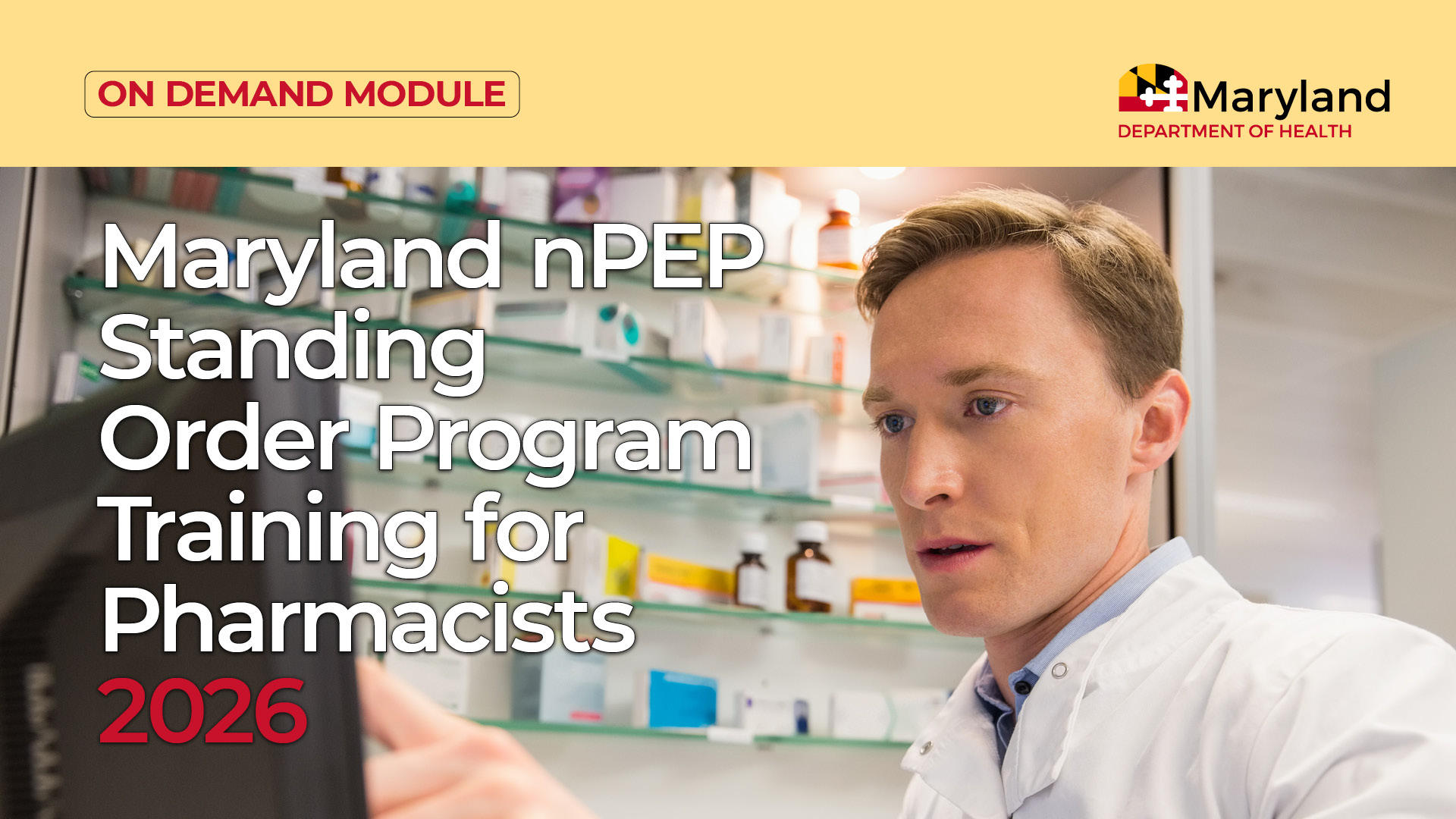
Maryland nPEP Standing Order Program Training for Pharmacists 2026
February 19, 2026The 2024 Maryland Legislative Session concluded with the approval of HB0127, which established the Non-Occupational Post-Exposure Prophylaxis (nPEP) Standing Order Program (“The Program”). The Program authorizes pharmacists to dispense nPEP under certain circumstances. This module presents to pharmacists the clinical and administrative tasks necessary to prescribe and/or dispense nPEP under a standing order when requested.
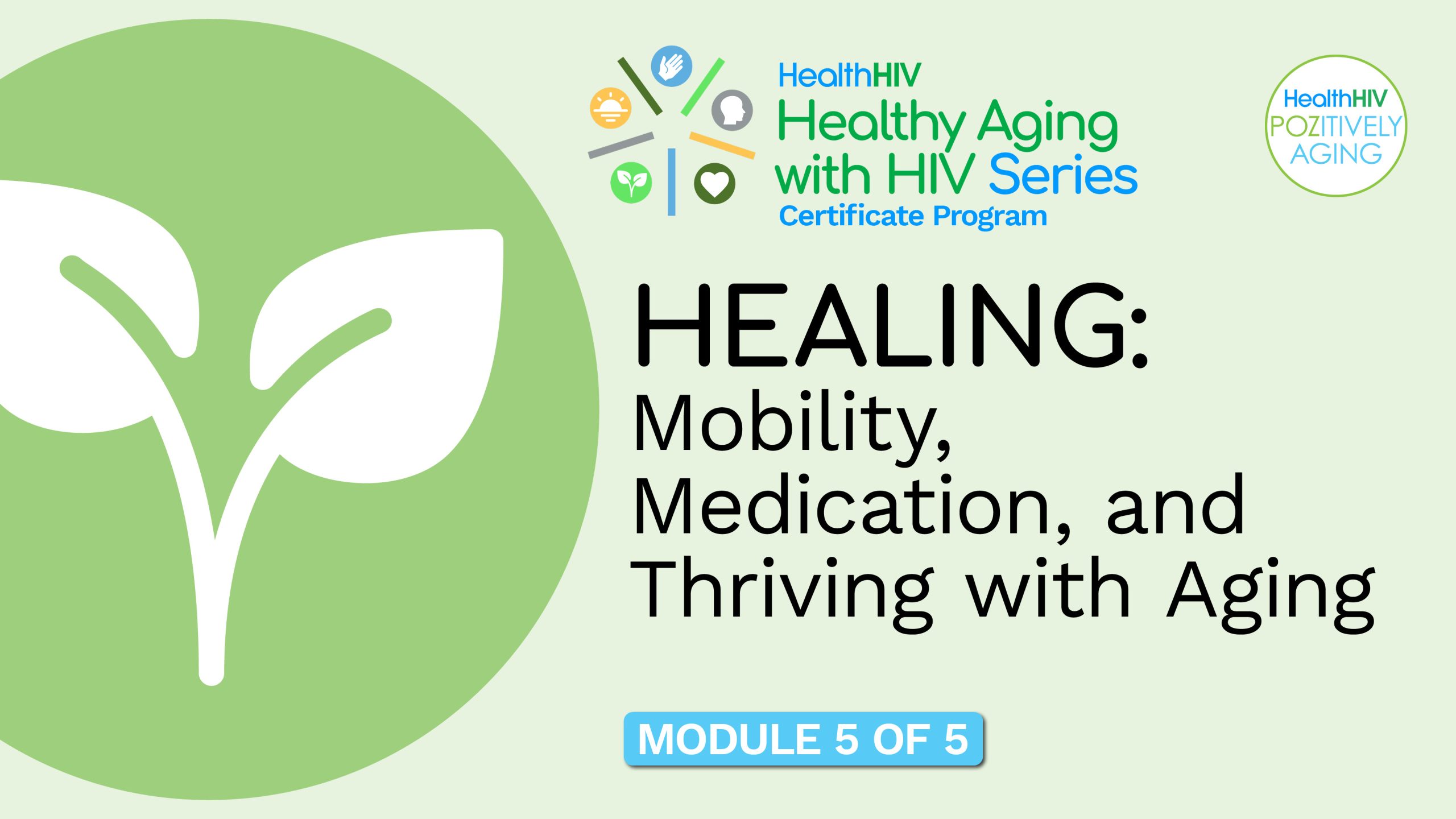
Healing: Mobility, Medication, and Thriving with Aging
January 27, 2026This module focuses on addressing and evaluating frailty, peripheral neuropathy, and polypharmacy among PAWH. Participants will also explore the complexities of polypharmacy (the utilization of multiple medications). The session offers strategies for optimizing care, minimizing drug interactions, and improving overall health outcomes in this growing population.
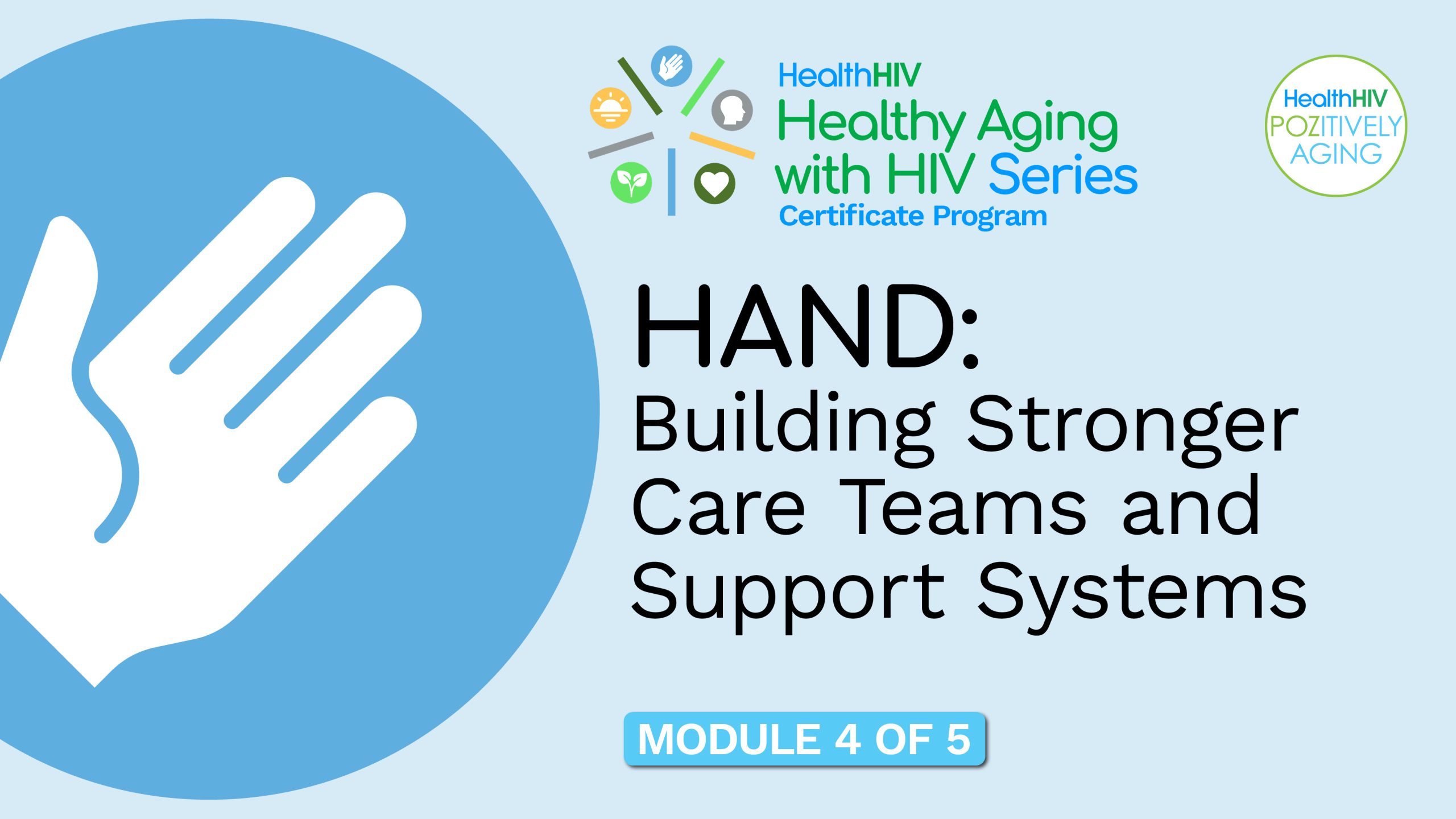
Hand: Building Stronger Care Teams and Support Systems
January 20, 2026This module is focused on facilitating a multidisciplinary team (MDT) approach for PAWH, as well as on supportive services and referrals. This session will explore the importance of integrating non-medical professionals such as Community Health Workers (CHWs), Case Managers and Navigators into the overall care plan for PAWH, as well as effective collaboration tactics to increase patient health.
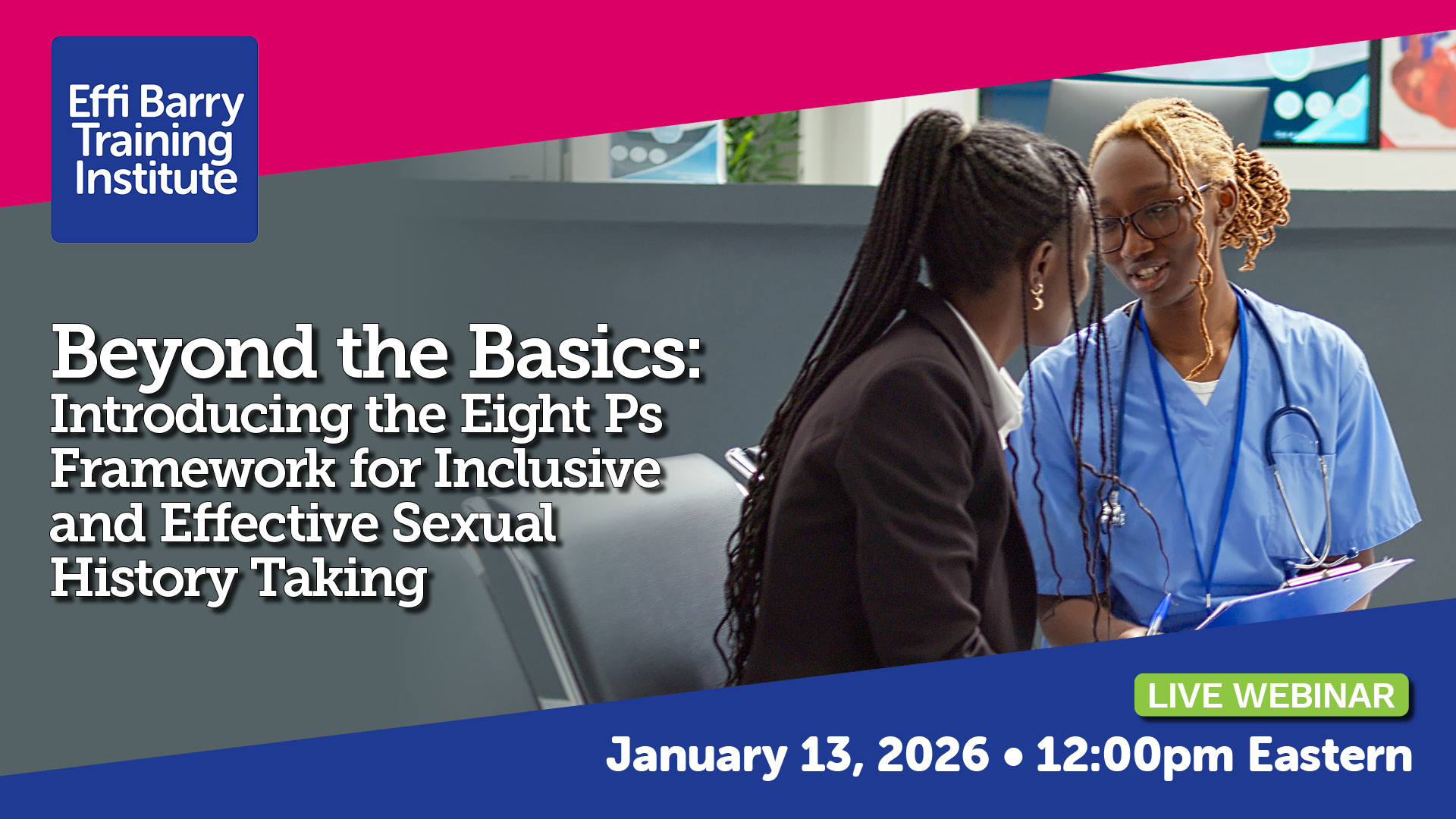
Beyond the Basics: Introducing the Eight Ps Framework for Inclusive and Effective Sexual History Taking
January 19, 2026Traditional sexual history models don’t fully capture today’s realities of mobility, digital connection, and borderless sexual networks. The new Eight Ps Framework builds on prior models by integrating these modern patterns alongside a more person-centered, equity-focused approach to sexual wellbeing.
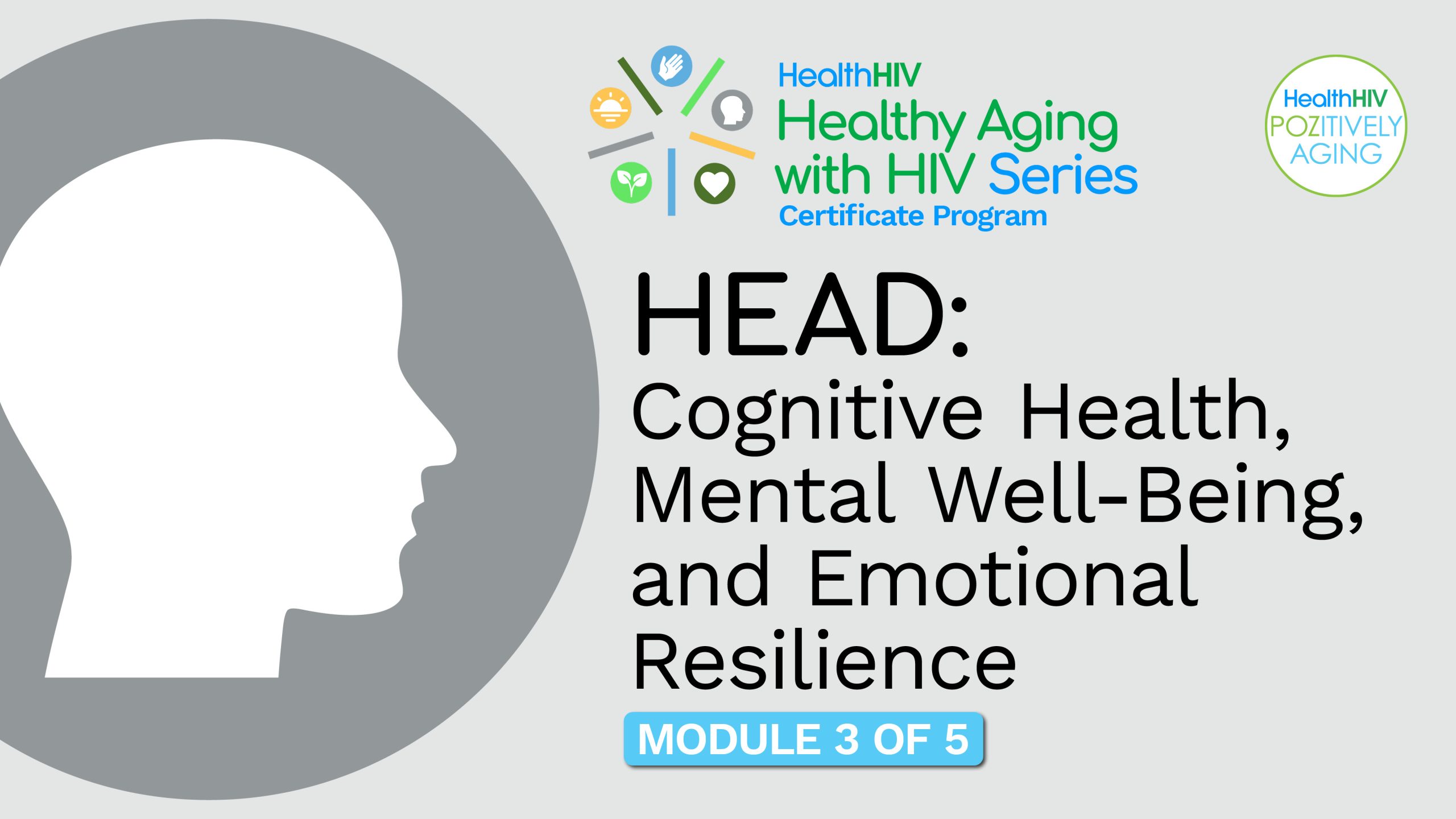
Head: Cognitive Health, Mental Well-Being, and Emotional Resilience
January 13, 2026This module is designed to give providers an overview of cognitive health and related issues for PAWH (including mental health, depression, and stress-related impacts). Participants will gain valuable insights and assessment tools to identify and refer clients and patients to mental health services.
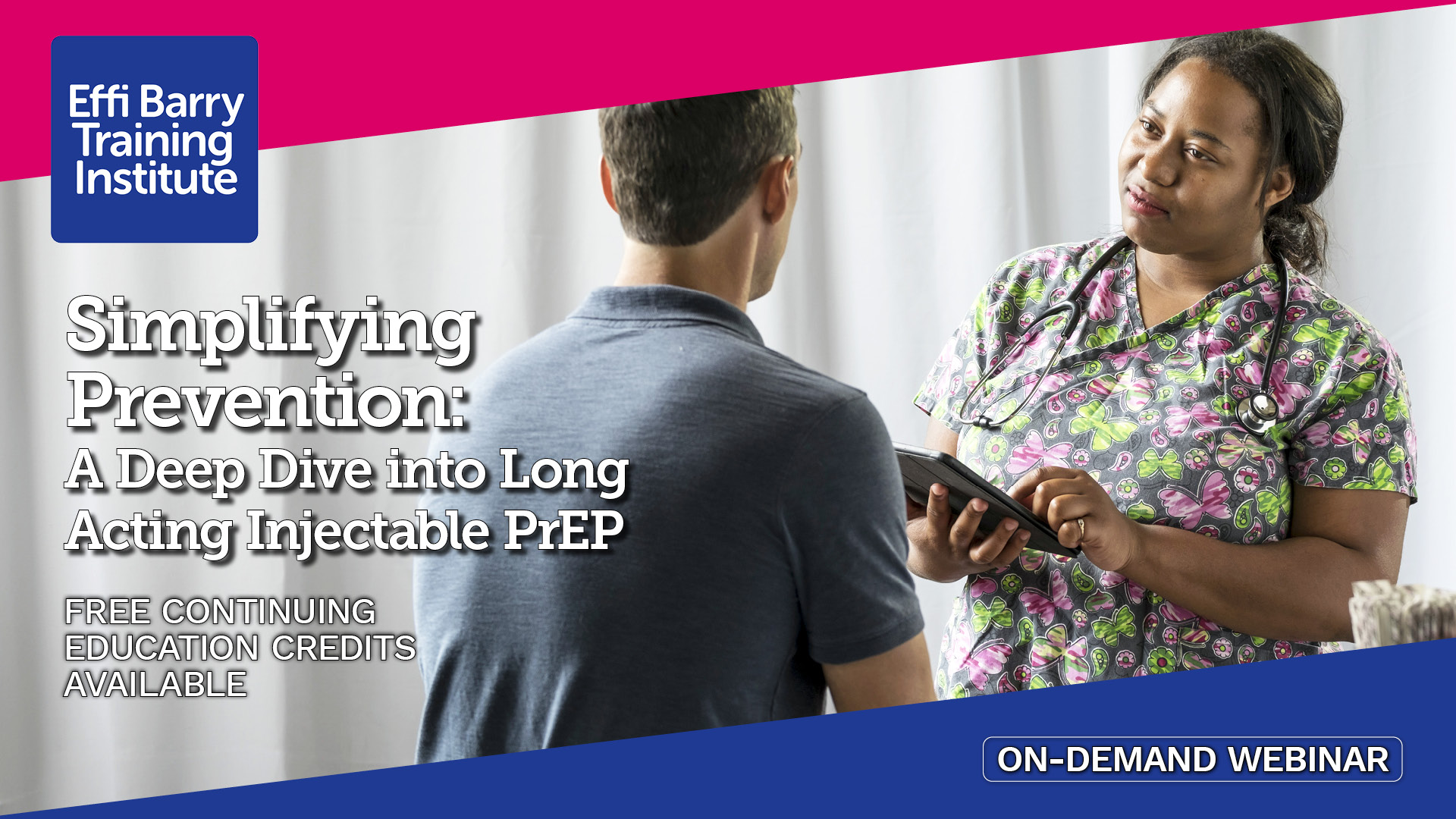
Simplifying Prevention: A Deep Dive into Long Acting Injectable PrEP
January 9, 2026Providing a comprehensive overview of LAI-PrEP, this webinar will focus on identifying eligible populations and comparing the benefits and challenges of using any PrEP option. Participants will learn strategies to promote equitable access, outreach, and uptake, particularly among priority populations.
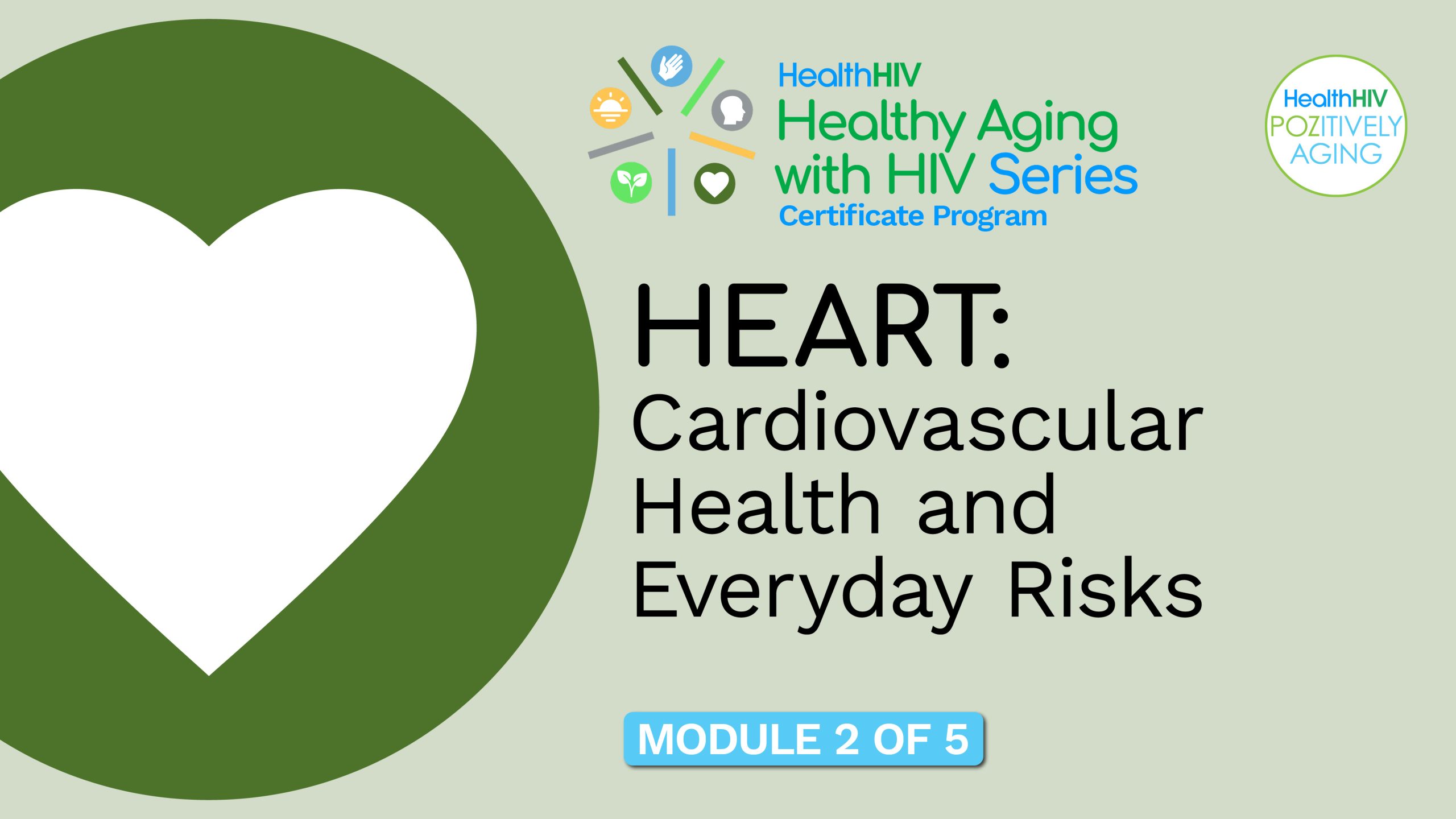
Heart: Cardiovascular Health and Everyday Risks
December 1, 2025This session is designed to provide a comprehensive overview of cardiovascular disease (CVD) risk among People Aging with HIV, and related issues such as statin use and assessments (like Bendopnea screenings and orthostatic blood pressure tests).
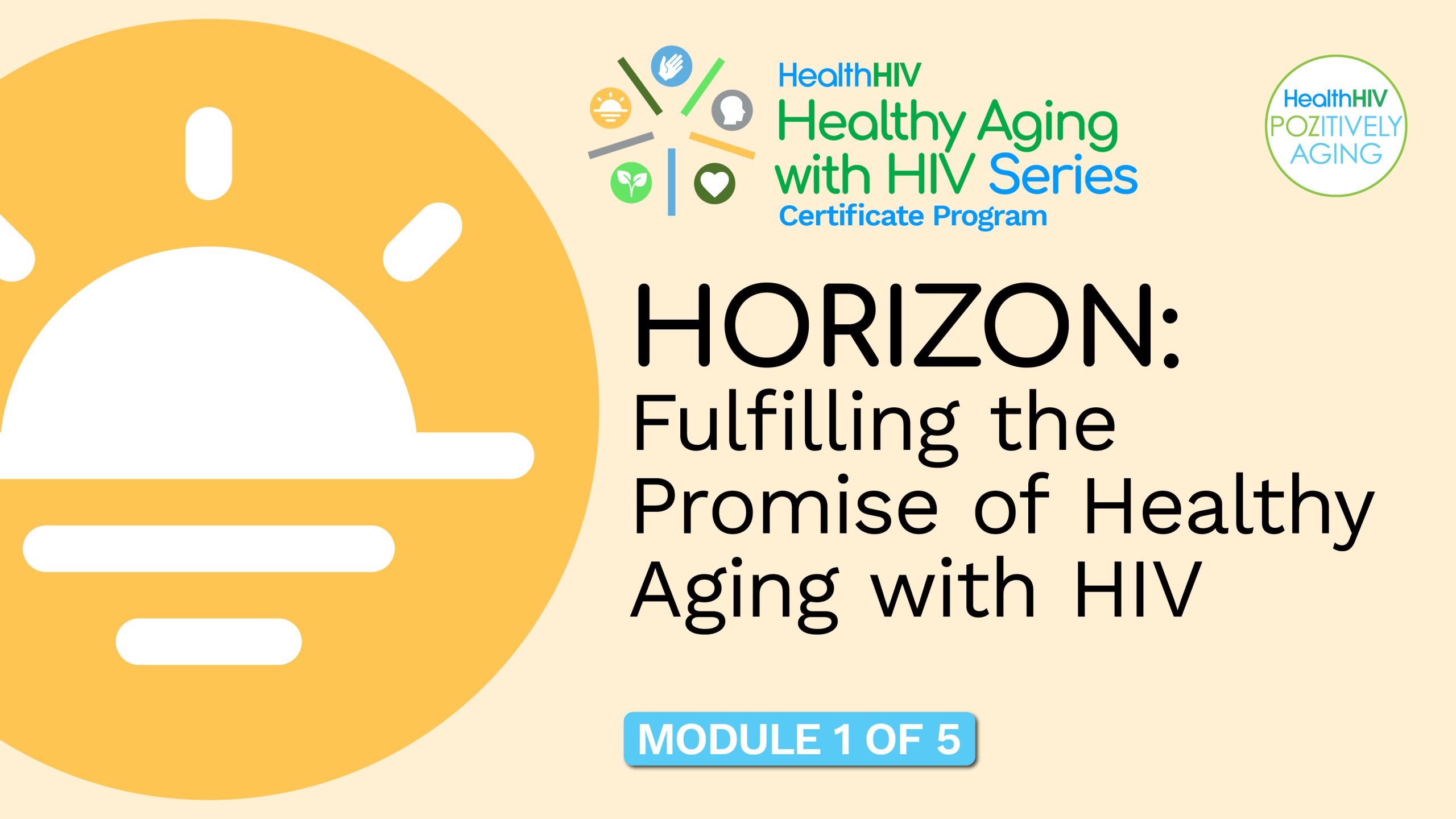
Horizon: Fulfilling the Promise of Healthy Aging with HIV
Utilizing data from the 4th Annual State of Aging with HIV National Survey, the People Aging With HIV-Managing Chronic Disease session focuses on the demographics and unique healthcare needs of older adults living with HIV. It explores the challenges of managing multiple chronic conditions alongside HIV. The session offers strategies for optimizing care and improving overall health outcomes in this growing population.
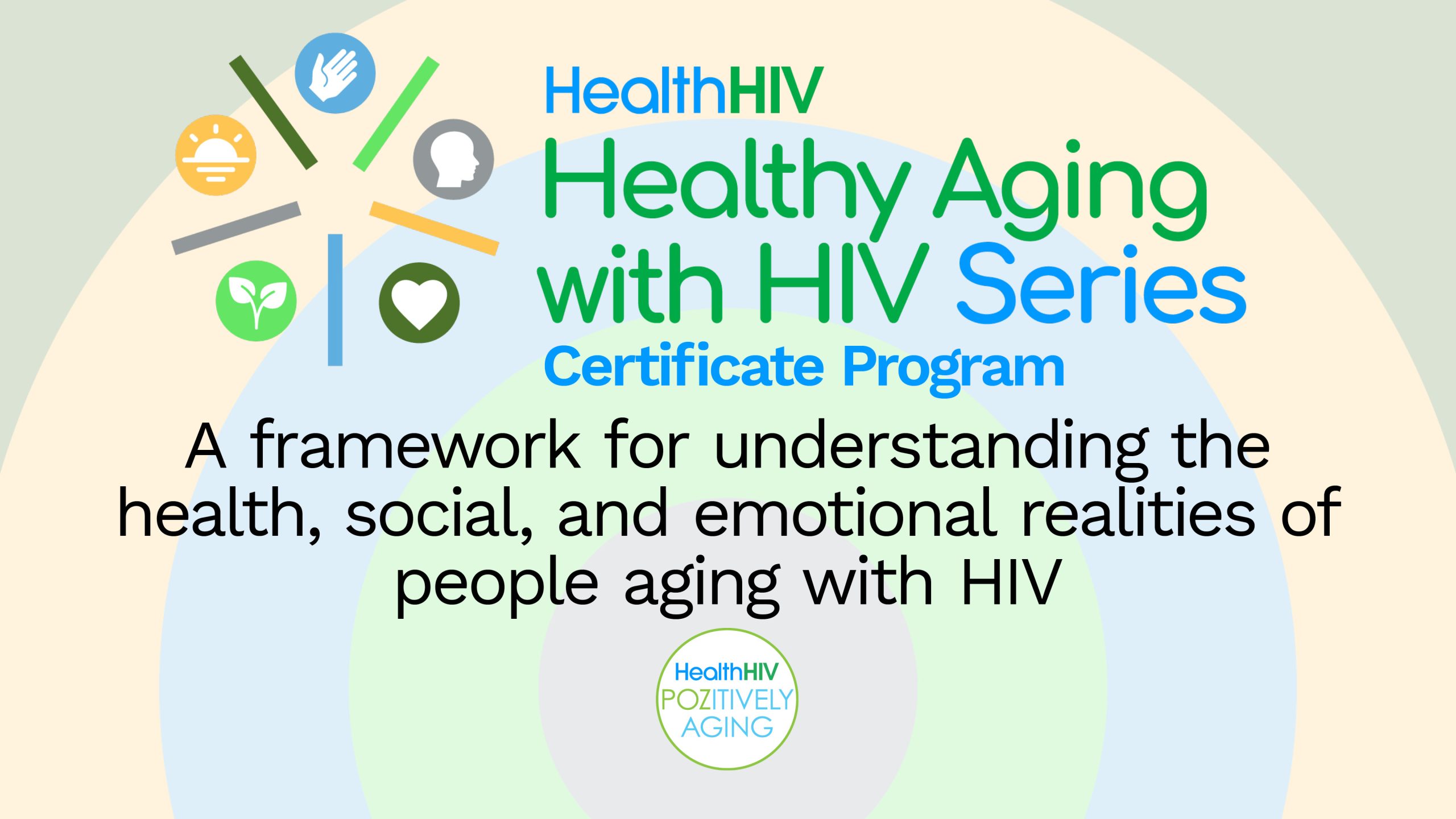
Healthy Aging with HIV Series: Introduction
This accredited learning series explores what it means to age with HIV, connecting science, lived experience, and practice. Each of the five modules is accredited individually, offering continuing-education credits, and participants who complete the full series will receive a certificate of completion. In this introductory module, we’ll briefly introduce the concept behind this series, how it uses the Five Hs—Horizon, Heart, Head, Hand, and Healing—as a framework for understanding the health, social, and emotional realities of people aging with HIV, and discuss the broader Healthy Aging Hub.

Thriving in Uncertainty: Strategies for Sustaining HIV Prevention in DC
November 21, 2025To thrive in times of uncertainty, CBOs must strengthen their organizational resilience and proactively position themselves for long-term success. This webinar will provide practical, actionable strategies to help leaders assess their organizations, identify vulnerabilities and opportunities, and chart a path toward sustainability.
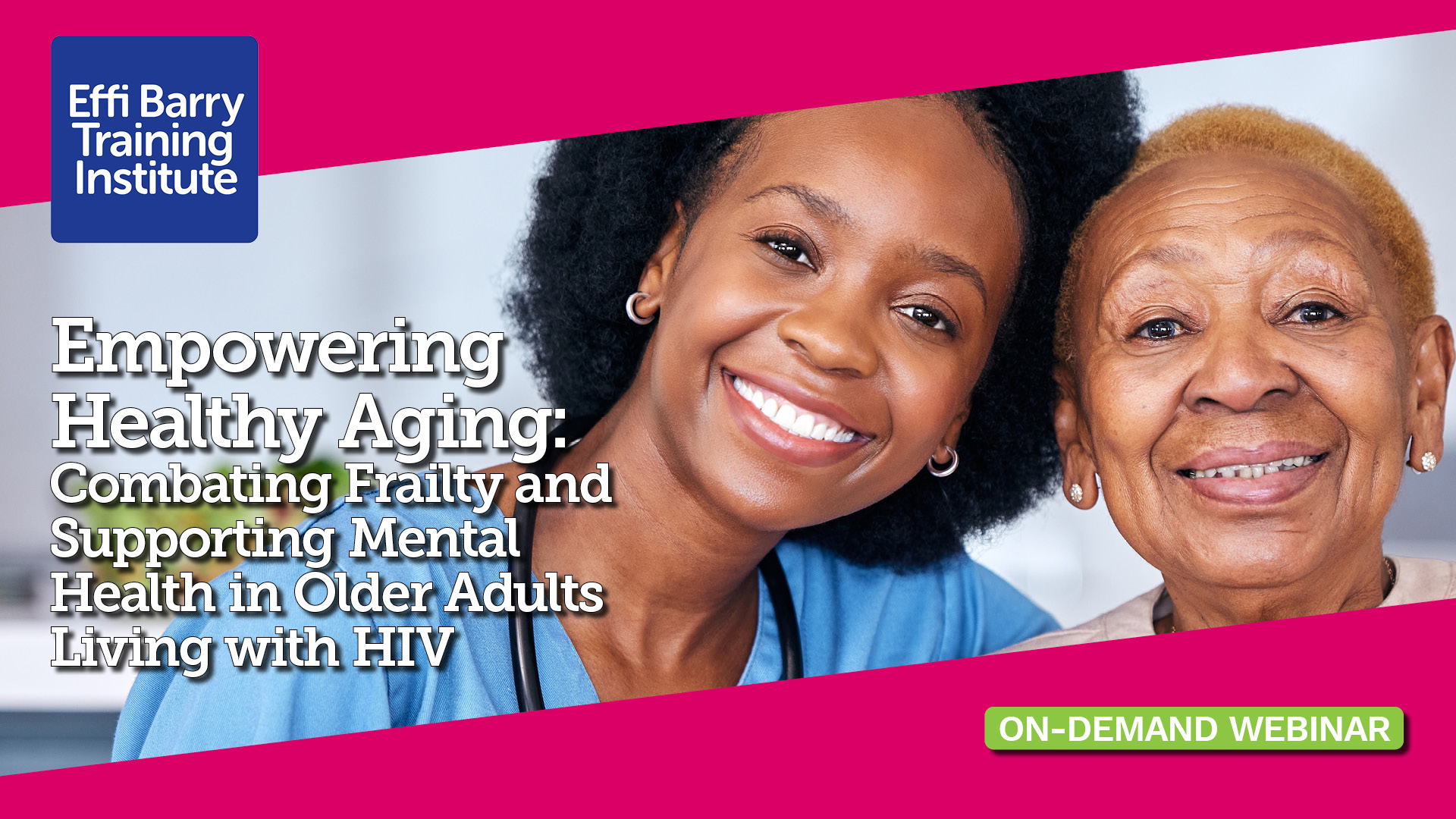
Empowering Healthy Aging: Combating Frailty and Supporting Mental Health in Older Adults Living with HIV
This engaging two hour session will focus on helping older adults living with HIV stay strong in body and mind. Learn how to fight frailty, boost emotional wellness, and build resilience among older adults living with HIV – helping them to not just survive, but truly thrive!
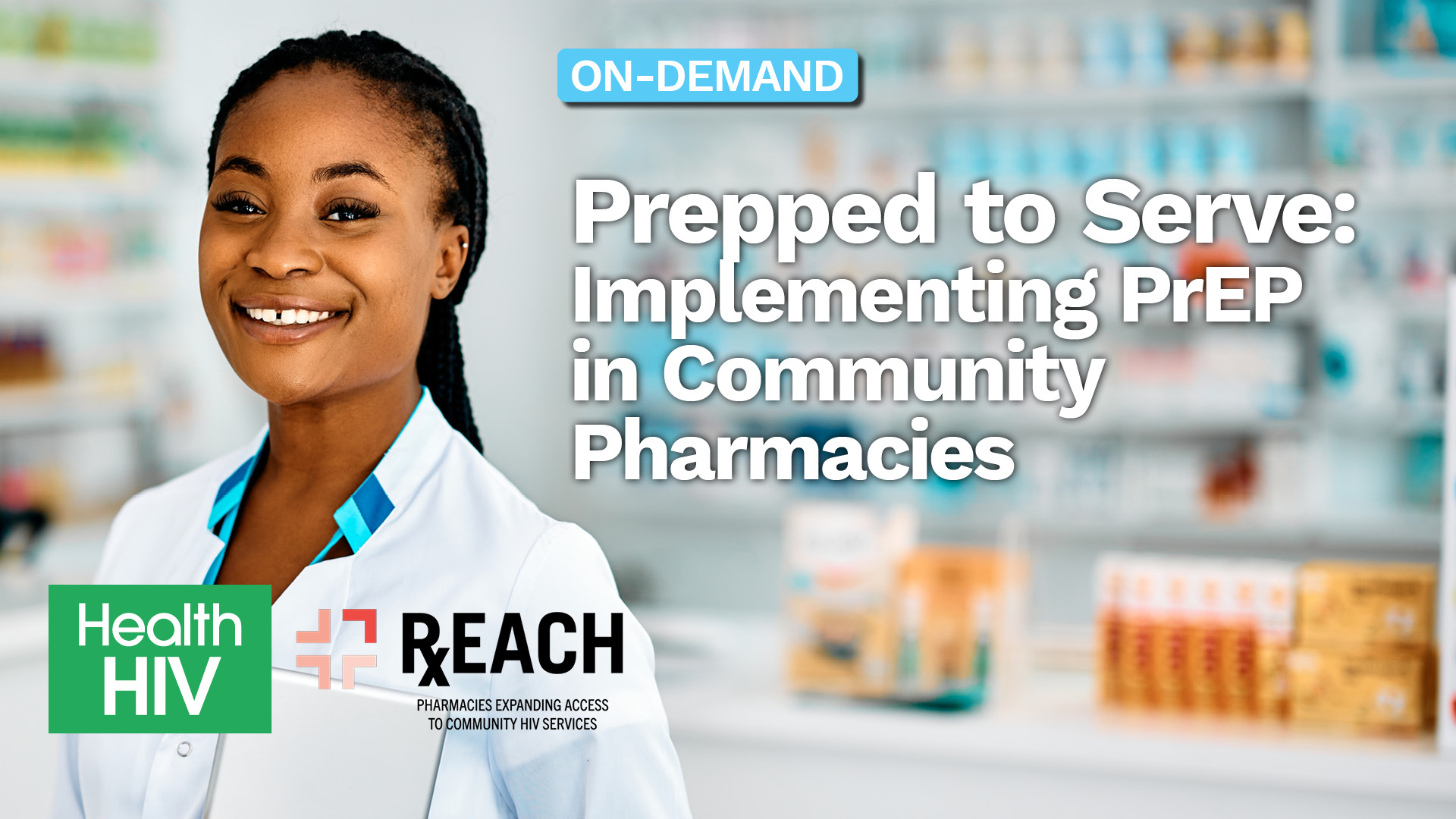
Prepped to Serve: Implementing PrEP in Community Pharmacies
November 20, 2025Join HealthHIV with RxEACH on Monday, December 1st, 2025 at 2:00pm EDT for “Prepped to Serve: A Toolkit to Implement PrEP in Community Pharmacies”. Presenters will overview a hands-on resource designed to help pharmacists, pharmacy staff, health-serving organizations, and community leaders support the sustainable delivery of HIV prevention services, including PrEP, PEP, and HIV screening, in community pharmacies.

